12 start with L start with L


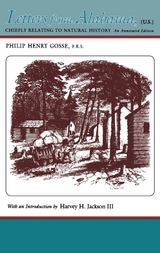
Philip Henry Gosse (1810-1888), a British naturalist, left home at age 17 and made his way to Alabama in 1838, where he had heard educated people were in demand. He was employed by Judge Reuben Saffold at Pleasant Hill in Dallas County as a teacher for about a dozen children of local landowners, but his principal interest was natural history. During the eight months he lived in th Black Belt he watched, listened, thought, took notes, and made sketches--activities that eventually led to Letters from Alabama. He lived among Alabamians, talked and listened to them, saw them at their best and their worst, and came to understand their hopes and fears. They were a part of the natural world, and he paid attention to them as any good scientist would. With the skills of a scientist and the temperament of an artist, Gosse set down an account of natural life in frontier Alabama that has no equal. Written to no one in particular, a common literary device of the period, the letters were first published in a magazine, and in 1859 appeared as a book. By that time Gosse was an established scholar and one of England’s most noted scientific illustrators.
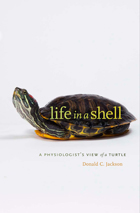
Trundling along in essentially the same form for some 220 million years, turtles have seen dinosaurs come and go, mammals emerge, and humankind expand its dominion. Is it any wonder the persistent reptile bested the hare? In this engaging book physiologist Donald Jackson shares a lifetime of observation of this curious creature, allowing us a look under the shell of an animal at once so familiar and so strange.
Here we discover how the turtle’s proverbial slowness helps it survive a long, cold winter under ice. How the shell not only serves as a protective home but also influences such essential functions as buoyancy control, breathing, and surviving remarkably long periods without oxygen, and how many other physiological features help define this unique animal. Jackson offers insight into what exactly it’s like to live inside a shell—to carry the heavy carapace on land and in water, to breathe without an expandable ribcage, to have sex with all that body armor intervening.
Along the way we also learn something about the process of scientific discovery—how the answer to one question leads to new questions, how a chance observation can change the direction of study, and above all how new research always builds on the previous work of others. A clear and informative exposition of physiological concepts using the turtle as a model organism, the book is as interesting for what it tells us about scientific investigation as it is for its deep and detailed understanding of how the enduring turtle “works.”
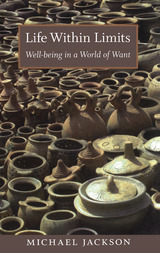
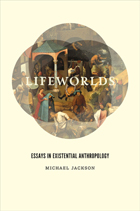
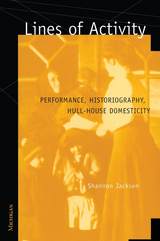
This groundbreaking book demonstrates how performance analysis can contribute to the historical study of American reform as well as to critical inquiry on the arts and social change. She develops connections between performativity and sex/gender difference by interpreting Hull-House as a sphere of queer kinship and alternative gender performance. Lines of Activity also engages a variety of debates on the nature of historical representation, and the role of "theory" in historical writing.
As the notion of "performance historiography" gains currency, Jackson's study exposes the gender politics of such scholarly trends. By selecting the Progressive Era and Hull-House as arenas of inquiry, Jackson foregrounds how past discourses of domesticity, pragmatism, transnationalism, and environmentalism already contain performance-centered notions of identity, space, and community. Through these and other arguments, Lines of Activity reveals the intimate connection between a history of Hull-House performance and the performance of Hull-House history.
Shannon Jackson is Assistant Professor of Rhetoric and of Dramatic Art and Dance, University of California, Berkeley.
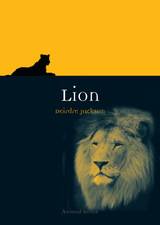
Although the lion is not the largest, fastest or most lethal animal, its position as king of beasts has rarely been challenged. Since Palaeolithic times, lions have fascinated people, and due to its gallant mane, knowing eyes, and distinctive roar, the animal continues to beguile us today. In Lion, Deirdre Jackson paints a fresh portrait of this regal beast, drawing on folktales, the latest scientific research, and even lion-tamers’ memoirs, as well as other little-known sources to tell the story of lions famous and anonymous, familiar and surprising.
Majestic, noble, brave—the lion is an animal that has occupied a great place in the human imagination, inspiring countless myths, lore and legends. As well, this creative relationship has abounded in visual culture—painted on wood and canvas, chiseled in stone, hammered in metal, and tucked between the pages of medieval manuscripts, lions have often represented divinity, dignity, and danger.
In Lion Jackson summarizes the latest findings of field biologists and offers in-depth analyses of works of art, literature, oral traditions, plays, and films. She is a peerless guide on a memorable visual and cultural safari.
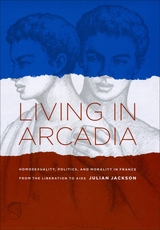
In Paris in 1954, a young man named André Baudry founded Arcadie, an organization for “homophiles” that would become the largest of its kind that has ever existed in France, lasting nearly thirty years. In addition to acting as the only public voice for French gays prior to the explosion of radicalism of 1968, Arcadie—with its club and review—was a social and intellectual hub, attracting support from individuals as diverse as Jean Cocteau and Michel Foucault and offering support and solidarity to thousands of isolated individuals. Yet despite its huge importance, Arcadie has largely disappeared from the historical record.
The main cause of this neglect, Julian Jackson explains in Living in Arcadia, is that during the post-Stonewall era of queer activism, Baudry’s organization fell into disfavor, dismissed as conservative, conformist, and closeted. Through extensive archival research and numerous interviews with the reclusive Baudry, Jackson challenges this reductive view, uncovering Arcadie’s pioneering efforts to educate the European public about homosexuality in an era of renewed repression. In the course of relating this absorbing history, Jackson offers a startlingly original account of the history of homosexuality in modern France.

As headlines about cash-rich corporations filing for Chapter 11 are appearing more and more frequently, bankruptcy law has come under sharp public scrutiny. Critics feel that irresponsible corporations and individuals may be using the law unfairly. In this clearly written book, legal scholar Thomas H. Jackson identifies the underlying principles of bankruptcy law and develops an economic/psychological analysis of its main problems—a framework that permits him to view the field as a whole rather than as a collection of disparate policies and historical artifacts.
Dealing first with the use of bankruptcy to adjust creditors’ relations among themselves, Jackson shows that individual creditors will attempt to recover as much of the bankrupt firm’s assets as they can. But to maximize the value of the assets, the creditors must act collectively to apportion them according to the priority of entitlements that existed before the bankruptcy.
This is a claim with sweeping implications, and Jackson not only supports it convincingly but examines in some detail the various consequences of adopting it. He takes up several of the most controversial issues in bankruptcy policy today, including the treatment in bankruptcy of collective labor agreements and the recognition of unmatured tort claims of the kind involved in the Manville bankruptcy. His thoughtful analysis arrives at results that are consistent with his economic framework but that espouse no single political ideology.
Turning then to the right of a financial fresh start for debtors who are not firms but human beings, Jackson thaws on recent ideas in psychology to explain why the right exists and why it cannot be waived.
He thus provides a comprehensive scheme for evaluating the principal features of the existing bankruptcy system and for comparing them with past and future alternatives. The book will be of keen interest not only to the specialist but also to those who want to know more about the institution of bankruptcy and its place in our legal system.
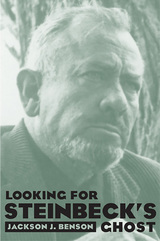
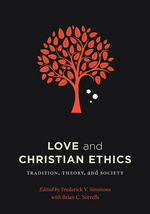
At the heart of Christian ethics is the biblical commandment to love God and to love one's neighbor as oneself. But what is the meaning of love? Scholars have wrestled with this question since the recording of the Christian gospels, and in recent decades teachers and students of Christian ethics have engaged in vigorous debates about appropriate interpretations and implications of this critical norm.
In Love and Christian Ethics, nearly two dozen leading experts analyze and assess the meaning of love from a wide range of perspectives. Chapters are organized into three areas: influential sources and exponents of Western Christian thought about the ethical significance of love, perennial theoretical questions attending that consideration, and the implications of Christian love for important social realities. Contributors bring a richness of thought and experience to deliver unprecedentedly broad and rigorous analysis of this central tenet of Christian ethics and faith. William Werpehowski provides an afterword on future trajectories for this research. Love and Christian Ethics is sure to become a benchmark resource in the field.
READERS
Browse our collection.
PUBLISHERS
See BiblioVault's publisher services.
STUDENT SERVICES
Files for college accessibility offices.
UChicago Accessibility Resources
home | accessibility | search | about | contact us
BiblioVault ® 2001 - 2024
The University of Chicago Press









